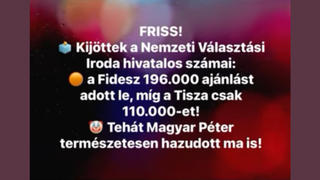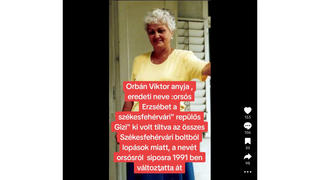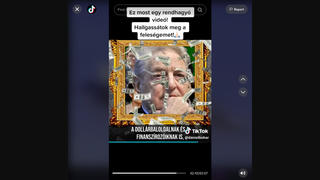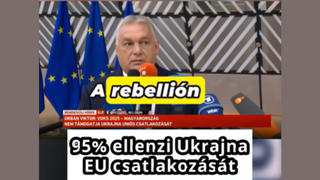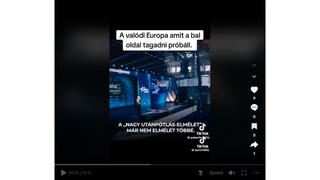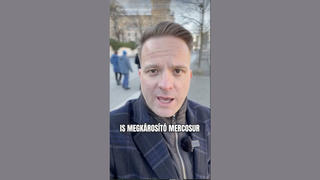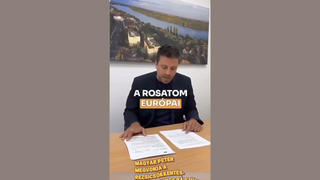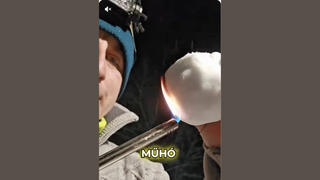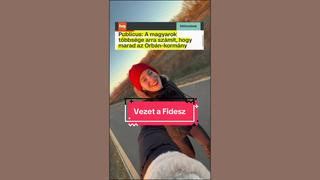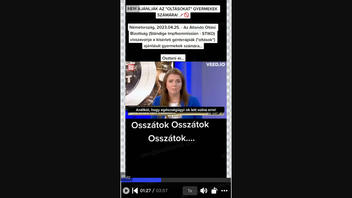
Are COVID-19 vaccines a form of experimental gene therapy that German medical authorities needlessly recommended for children? No, that's not true: None of the COVID-19 vaccines authorized in Germany alters a patient's DNA, as gene therapy does, and none is classified as experimental. And while it is true that Germany's Standing Committee on Vaccination (STIKO) did advise under-18s to get vaccinated against COVID-19 -- and has now walked back this recommendation -- the committee's role is strictly advisory. It cannot require anyone to get the shot.
The claim appeared in a Hungarian-language video on TikTok on May 4, 2023, under the title, "THEY DON'T RECOMMEND THE 'VACCINES' FOR CHILDREN💉🚫." The text, translated by Lead Stories, read:
Germany 2023.04.25. - The Standing Committee on Vaccination (Ständige Impfkommission - STIKO) withdraws its recommendation on giving experimental gene therapy ("vaccinations") to children... This is worth sharing... Share Share Share....
The video then presents a commentary by German vaccine-policy skeptic Birgit Kelle, which appeared on the tabloid newspaper Bild's YouTube channel on April 28, 2023. Speaking in German with Hungarian subtitles, Kelle berates STIKO members for announcing on April 25, 2023, that the commission should revoke its earlier guidance that under-18s be vaccinated:
As it happens, children are not at any special risk from the coronavirus! So there's no reason for children to be vaccinated against it! All of these facts were already on the table a year ago, and [STIKO] still issued a vaccination recommendation! ... I am among those who always trusted STIKO -- when it came to vaccination recommendations, too! And STIKO played away this trust, fatally and permanently! I ask, how can the responsible parties at STIKO sleep at night when they know they gave out a bogus recommendation to millions of parents?! That they vaccinated children, putting certain children at risk for side effects ... this is physical abuse to which the children were subjected! (Translated from the Hungarian subtitles by Lead Stories.)
Here is how the video appeared on TikTok at the time of the writing of this fact check:

(Source: TikTok screenshot taken on Mon June 12 09:51:30 2023 UTC)
At no point in the video does Kelle claim that COVID-19 vaccines are "experimental gene therapy," as the TikTok video creator does.
German health authorities have approved five vaccines to protect citizens from the coronavirus. Those manufactured by Pfizer-BioNTech and Moderna use messenger ribonucleic acid (mRNA) to trigger the creation of antibodies that fight the pathogen. This is not gene therapy, as the British National Health System explains:
Gene therapies involve making deliberate changes to a patient's DNA in order to cure or alleviate a genetic condition... mRNA from the vaccines does not enter the cell nucleus or interact with the DNA at all, so it does not constitute gene therapy. Gene therapies can have long-lasting effects because they permanently change the cell's DNA, with these changes being inherited by any daughter cells that result if the cell divides. In contrast, mRNAs are always transitory and are not inherited by daughter cells, making them ideal for use in vaccines.
The COVID-19 injections produced by Johnson & Johnson and AstraZeneca are "viral vector" vaccines. They use a modified virus to deliver genetic code to human cells, which then produce the antigens that trigger an immune response. This process also cannot be considered gene therapy, the U.S. Centers for Disease Control and Prevention states:
Viral vector COVID-19 vaccines deliver genetic material to the cell nucleus to allow our cells to build protection against COVID-19. However, the vector virus does not have the machinery needed to integrate its genetic material into our DNA, so it cannot alter our DNA.
Meanwhile, Novavax's jab stimulates the human immune system to fight the COVID-19 virus via a protein made using moth cells and an adjuvant made from tree bark. It contains no genetic material, according to a statement by Dr. Diana Florescu, who led a clinical trial of the vaccine at the University of Nebraska Medical Center.
None of these five vaccines are experimental. Researchers tested the vaccines produced by Pfizer-BioNTech, Moderna and Johnson & Johnson on tens of thousands of trial participants before the U.S. Food and Drug Administration granted emergency-use authorization for the vaccines. British officials demanded the same from Pfizer, Moderna and AstraZeneca, Lead Stories reported on February 10, 2022. Novavax's injection also proved safe and effective following clinical trials, the U.S. National Health Institutes said on June 14, 2021.
STIKO's statements
Germany's STIKO issued a recommendation that adolescents aged 12-17 be vaccinated against COVID-19 on August 16, 2021. It released similar guidance for children aged 5-11 on May 24, 2022. This advice was not an edict. As the committee notes on the homepage of its parent organization, the Robert Koch Institute:
STIKO is an independent advisory group. The recommendations are not legally binding, but by law they form the basis for the federal states' vaccination guidance and the Federal Joint Committee's vaccination directive.
STIKO's recommendation acknowledged that COVID-19 jabs may cause very rare side effects such as myocarditis, an inflammation of the heart, in some children. However, its members concluded that the benefits of vaccination outweighed the risks:
In the majority of cases, the patients with this myocarditis were hospitalized, but had an uncomplicated course with the appropriate medical care. Conversely, more recent studies from abroad indicate that cardiac involvement also occurs in COVID-19 diseases. In addition, there have been no signals of further serious side effects after mRNA vaccination, especially not in children and adolescents. (Translation by Google Translate.)
On April 24, 2023, STIKO members held a press conference at which they said their previous guidance should be revoked for otherwise healthy under-18s. (The information was embargoed until the next day.) Carsten Watzl, an immunologist who is not a member of STIKO but participated in the briefing, stressed that the change was not based on any new data showing increased risks for children:
Since there are no longer vaccination recommendations for under 18s, I find it very important to add that STIKO does not see an increased risk in vaccination. Because some doctors sometimes deduce from a missing STIKO recommendation that one should not vaccinate at all because it might be too dangerous. And that's made very clear here. The risk of vaccination is extremely low for those under 18, but so is the risk of infection. And that is why the cost-benefit calculation for vaccination is not given in this respect. Therefore, no STIKO recommendation, but also no clear statement that children should not be vaccinated. (Translation by Google Translate.)


